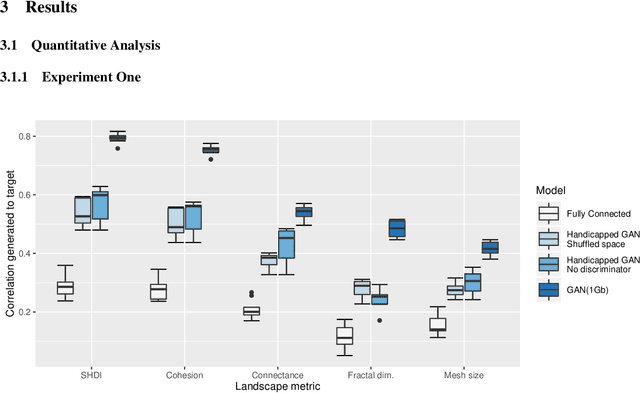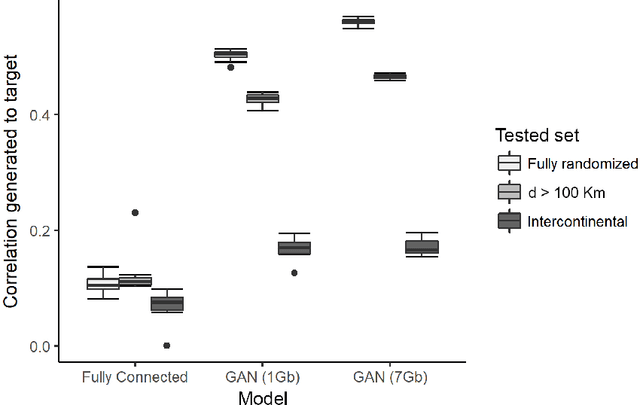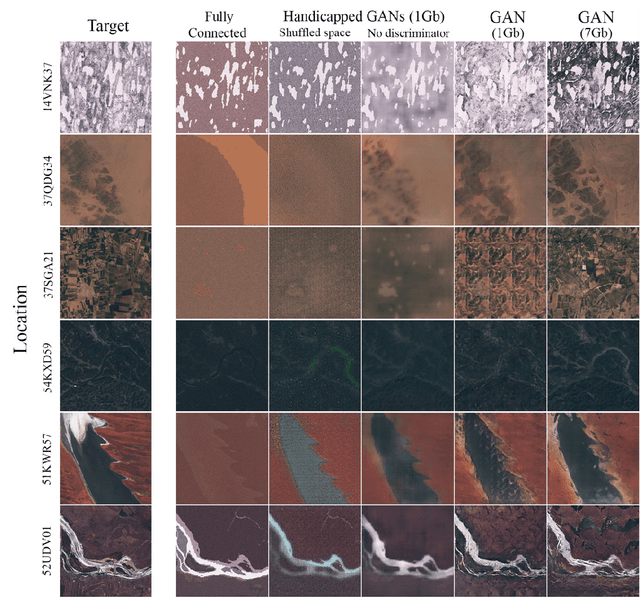Basil Kraft
Predicting Landscapes from Environmental Conditions Using Generative Networks
Sep 23, 2019



Abstract:Landscapes are meaningful ecological units that strongly depend on the environmental conditions. Such dependencies between landscapes and the environment have been noted since the beginning of Earth sciences and cast into conceptual models describing the interdependencies of climate, geology, vegetation and geomorphology. Here, we ask whether landscapes, as seen from space, can be statistically predicted from pertinent environmental conditions. To this end we adapted a deep learning generative model in order to establish the relationship between the environmental conditions and the view of landscapes from the Sentinel-2 satellite. We trained a conditional generative adversarial network to generate multispectral imagery given a set of climatic, terrain and anthropogenic predictors. The generated imagery of the landscapes share many characteristics with the real one. Results based on landscape patch metrics, indicative of landscape composition and structure, show that the proposed generative model creates landscapes that are more similar to the targets than the baseline models while overall reflectance and vegetation cover are predicted better. We demonstrate that for many purposes the generated landscapes behave as real with immediate application for global change studies. We envision the application of machine learning as a tool to forecast the effects of climate change on the spatial features of landscapes, while we assess its limitations and breaking points.
 Add to Chrome
Add to Chrome Add to Firefox
Add to Firefox Add to Edge
Add to Edge